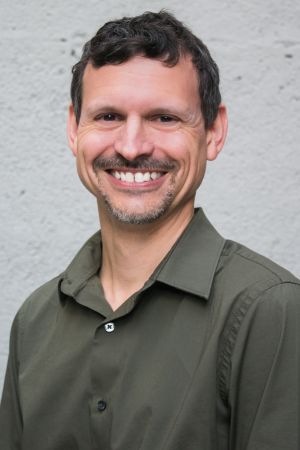[ad_1]
Contributed by Debbie Clason, staff writer, Healthy Hearing
Patients purchasing hearing aids at Providence Speech and Hearing Center (PSHC) can take comfort in knowing their hearing will improve, and also that they are helping provide hearing services to those who can’t afford it. Thanks to PSHC’s mission to provide speech and hearing services to everyone regardless of ability to pay along with the generosity of their donors, no one who walks through their doors ever gets turned away.

Providence Speech and Hearing
“Our goal is to help anyone who wants it or needs it,” Dr. Christopher Townsley, an audiologist with the nonprofit, said. “We can focus on fixing hearing loss and not selling hearing aids. It removes the barrier for people to get help. I’m able to say to my patients, ‘I get paid the same whether you buy hearing aids or not. I have nothing at stake here but whatever is best for you.’ It’s kinda nice to have this in our back pocket.”
A history of service
Providence Speech and Hearing was founded 53 years ago by Dr. Margaret Ann Inman, a nun who was a speech pathologist and wanted to provide speech services for children whose families couldn’t afford it. From their humble beginnings in a one-room adobe schoolhouse located across the street from St. Joseph Hospital, PSHC now sees thousands of patients at six locations throughout Orange County, California.
Many of these patients are children, an estimated 425 every day. Dr. Townsley said PSHC is the only center in Orange County that accepts Medicaid (Medi-Cal) for speech and hearing. Due to California’s strict protocols on early identification of hearing loss, PSHC is the referral of choice for most medical professionals.
“Kids kinda have to come to us. We get thousands — more than 130,000 appointments last year,” he said. “Everybody is on board with that mainly because if we can fit kids by the age of six months (with hearing aids), they will develop speech and hearing like other kids.”
In addition to their commitment to treating everyone with hearing loss regardless of their ability to pay, Dr. Townsley believes a no-pressure customer service approach sets them apart from others offering hearing care services in Orange County.
Low pressure, high satisfaction
“We’re patient-focused, not revenue focused,” he said, adding that staff are not incentivized to sell hearing aids. “We act like a private practice, but we’re not. We don’t have the money to have a coffee bar like some do, but we can give our patients lots and lots of time so they feel comfortable, and we can address their issues.”
Not only does that keep their hearing device return rates well below the national average of 5 percent, it also keeps the door open for those who need more time adjusting to their hearing loss diagnosis.
“A patient who is happy with their hearing aids is a patient who wears them all day every day and doesn’t stick them in a sock drawer,” he explained. “Those who aren’t ready aren’t pressured into buying them. Those who aren’t emotionally or psychologically ready for hearing aids appreciate an honest opinion. They remember how we treat them and how honest we are with them. We do it in a different way than others because we can. It leads to better hearing aid sales, happier patients and better outcomes.”
Corporate and family foundations provide grant funding for the speech and hearing services PSHC delivers to low-income, under-insured and uninsured families. Those who can afford to pay full price for their hearing care do so gladly because they believe in the mission and know their purchase will help subsidize the care of someone in need. A few of their funded projects include Hearing Programs for Seniors, Children’s Low Income Subsidy, Early Literacy Intervention, Fall Prevention and Balance Center and the Hear for All Program.
Professional fulfillment
Dr. Townsley views PSHC’s altruistic philosophy as a job benefit, sharing that removing financial barriers to better hearing health is a key component to job satisfaction. “You get to the point where you make a huge difference in people’s lives, especially in the ones that wouldn’t be able to get help otherwise. It’s a little more special when that person has wanted to get hearing aids and hasn’t been able to do anything about it and we were able to facilitate it.”
“That’s the joy we want to have when we started (as audiologists), and we lose along the way.”
The biggest challenge PSHC faces just might be letting everyone know they exist. Although many physicians refer their adult patients to PSHC, not all adults who need help find their way through the front door. “The frustration is that we exist, but people are still going elsewhere and getting less than the care they deserve,” Dr. Townsley lamented. “They don’t have to spend what little money they have on an inferior product or service.”
Regardless of where you live, don’t let lack of income or insurance prevent you from seeking treatment for your hearing loss. Many hearing centers have programs and services designed to provide hearing services for their patients who can’t afford them. Search Healthy Hearing’s directory of professionals to find a hearing center in your community and make an appointment for a hearing evaluation. A candid conversation with a hearing healthcare professional is your first step to enjoying better hearing health.
[ad_2]
Source link
